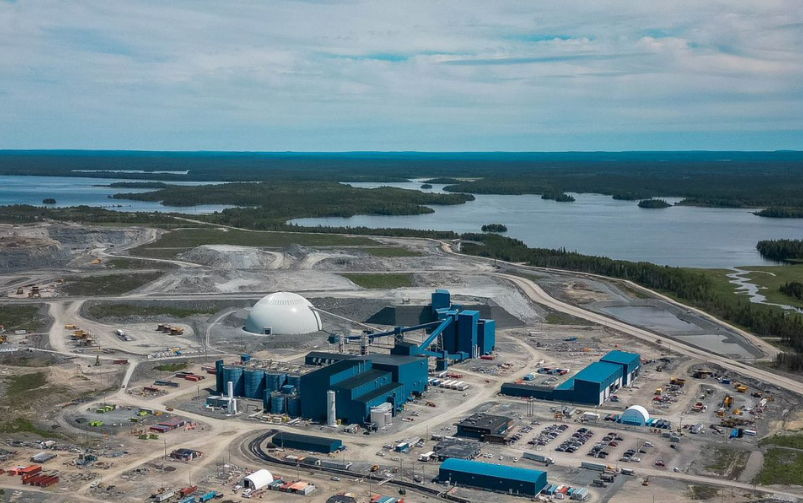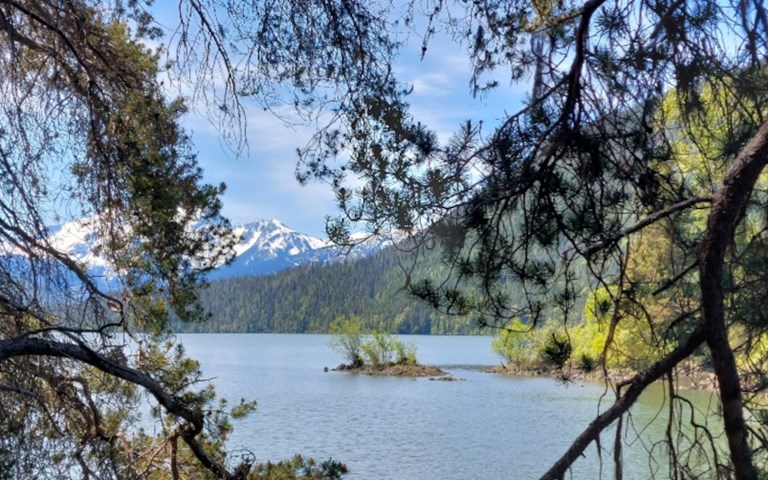The rights to royalties from five mining projects, located in northwestern B.C.’s Golden Triangle region, will be acquired by the new company. Courtesy of Backcountry Travel Canada
An agreement inked on Feb. 1 between B.C.’s Nisga’a Nation and Vega Mining Inc. will see Canada’s largest majority Indigenous-owned public company form over the coming months. Vega Mining, which will be majority owned by the Nisga’a Nation and will eventually be renamed as Nations Royalty Corp., will acquire the rights to five annual benefit payment entitlements stemming from projects located in B.C.’s Golden Triangle region in exchange for common shares in Vega Mining’s capital.
The five projects involved in the Nations Royalty holdings are Ascot Resources’ Premier gold project and Red Mountain project, Newmont’s Brucejack mine, Seabridge Gold’s KSM project and New Moly LLC’s Kitsault project.
“One of the [significant] things with this agreement is that since it’s the first Indigenous-owned royalty company in Canada, it allows us to be a bigger player in the mining industry; it gives us the ability to build a lot of capital through what we’re doing with this company,” said Charles Morven, secretary-treasurer of Nisga’a Lisims Government, in an interview with CIM Magazine.
Morven explained that the Nisga’a Nation already has an existing alliance with the province of B.C. and several mining companies within the province—including Skeena Resources and FPX Nickel Corp—known as the B.C. Regional Mining Alliance (BCRMA). The BCRMA represents a partnership between the province’s Indigenous groups and industry and provincial government representatives. The BCRMA currently makes it a priority to draw in international investment to the province through its partnerships, especially in the Golden Triangle region, and Morven foresees that Nations Royalty will be able to bring in further investment.
Over the last two years, the Nisga’a Nation and its partners were occupied with signing numerous agreements, as well as locating a company that would agree to house Nations Royalty. “We also had to communicate with mining companies that we had benefit agreements with and had to get their permission to be able to include them in the royalty company,” he added.
Morven explained that the genesis of the company began with a discussion between the Nisga’a Nation and mining financier and CEO of Fiore Group, Frank Giustra, who asked about the aspirations of the Nisga’a Nation in mining. “One of the things that we wanted to do was to be more knowledgeable of the whole mining industry, especially mining operations, and how we could begin to have a bigger say by investing [into mining operations] ourselves,” Morven said.
Morven considers the formation of Nations Royalty to be a big step towards the Nisga’a Nation’s ability to become completely self-governing, emphasizing how a reduced reliance on current funding agreements would ultimately lead to greater economic independence for B.C.’s Indigenous communities.
Robert McLeod, who is serving as Nations Royalty’s interim chief executive officer (CEO), considers the new company to be a significant step in the right direction towards granting B.C.’s Indigenous communities financial independence.
When McLeod was CEO of IDM Mining Ltd., which was later acquired by Ascot Resources, the company employed many members from the Nisga’a Nation for its Red Mountain project. McLeod stayed in contact with Eva Clayton, president of Nisga’a Lisims Government, and recounted initially discussing the idea of Nations Royalty with her, along with Morven, and Brian Tait, the Nisga’a Lisims Government executive chairperson.
“We thought, wouldn’t it be a cool story if First Nations [across] Canada pooled their royalties together to crystalize that value and you would have one of the largest royalty companies in Canada,” McLeod said.
The Nation soon engaged with finance committees and held community meetings to discuss the idea, along with further nurturing the relationship it had with its key partner, Giustra, who is now an advisor to Nations Royalty.
Trading is set to happen on the Toronto Stock Exchange in the spring. Once the company is set up, both McLeod and Morven hope to see it expand to include Indigenous nations across Canada, and potentially even expand into different countries across the globe.
“Hopefully [Nations Royalty] can set the example that Indigenous people all over can access the public markets, and that Canada has a wonderful system of venture capital out there that can support many ideas,” said McLeod.




